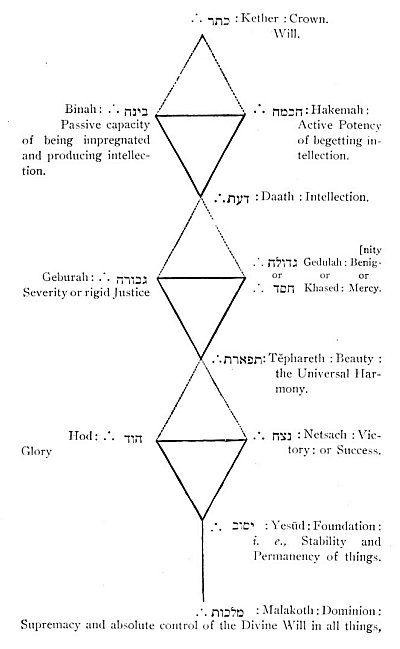The Vulgar imagined the attention of the Gods to be continually centred upon the earth and man. The Grecian Divinities inhabited Olympus, an insignificant mountain of the Earth. There was the Court of Zeus, to which Neptune came from the Sea, and Pluto and Persephoné from the glooms of Tartarus in the unfathomable depths of the Earth’s bosom. God came down from Heaven and on Sinai dictated laws for the Hebrews to His servant Moses. The Stars were the guardians of mortals whose fates and fortunes were to be read in their movements, conjunctions, and oppositions. The Moon was the Bride and Sister of the Sun, at the same distance above the Earth, and, like the Sun, made for the service of mankind alone.
If, with the great telescope of Lord Rosse, we examine the vast nebula of Hercules, Orion, and Androméda, and find them resolvable
p. 303
into Stars more numerous than the sands on the seashore; if we reflect that each of these Stars is a Sun, like and even many times larger than ours,–each, beyond a doubt, with its retinue of worlds swarming with life;–if we go further in imagination, and endeavor to conceive of all the infinities of space, filled with similar suns and worlds, we seem at once to shrink into an incredible insignificance.
The Universe, which is the uttered Word of God, is infinite in extent. There is no empty space beyond creation on any side. The Universe, which is the Thought of God pronounced, never was not, since God never was inert; nor WAS, without thinking and creating. The forms of creation change, the suns and worlds live and die like the leaves and the insects, but the Universe itself is infinite and eternal, because God Is, Was, and Will forever Be, and never did not think and create.
Reason is fain to admit that a Supreme Intelligence, infinitely powerful and wise, must have created this boundless Universe; but it also tells us that we are as unimportant in it as the zoöphytes and entozoa, or as the invisible particles of animated life that float upon the air or swarm in the water-drop.
The foundations of our faith, resting upon the imagined interest of God in our race, an interest easily supposable when man believed himself the only intelligent created being, and therefore eminently worthy the especial care and watchful anxiety of a God who had only this earth to look after, and its house-keeping alone to superintend, and who was content to create, in all the infinite Universe, only one single being, possessing a soul, and not a mere animal, are rudely shaken as the Universe broadens and expands for us; and the darkness of doubt and distrust settles heavy upon the Soul.
The modes in which it is ordinarily endeavored to satisfy our doubts, only increase them. To demonstrate the necessity for a cause of the creation, is equally to demonstrate the necessity of a cause for that cause. The argument from plan and design only removes the difficulty a step further off. We rest the world on the elephant, and the elephant on the tortoise, and the tortoise on–nothing.
To tell us that the animals possess instinct only and that Reason belongs to us alone, in no way tends to satisfy us of the radical difference between us and them. For if the mental phenomena
p. 304
exhibited by animals that think, dream, remember, argue from cause to effect, plan, devise, combine, and communicate their thoughts to each other, so as to act rationally in concert, if their love, hate, and revenge, can be conceived of as results of the organization of matter, like color and perfume, the resort to the hypothesis of an immaterial Soul to explain phenomena of the same kind, only more perfect, manifested by the human being, is supremely absurd. That organized matter can think or even feel, at all, is the great insoluble mystery. “Instinct” is but a word without a meaning, or else it means inspiration. It is either the animal itself, or God in the animal, that thinks, remembers, and reasons; and instinct, according to the common acceptation of the term, would be the greatest and most wonderful of mysteries,–no less a thing than the direct, immediate, and continual promptings of the Deity,–for the animals are not machines, or automata moved by springs, and the ape is but a dumb Australian.

Moe is the founder of GnosticWarrior.com. He is a father, husband, author, martial arts black belt, and an expert in Gnosticism, the occult, and esotericism.






